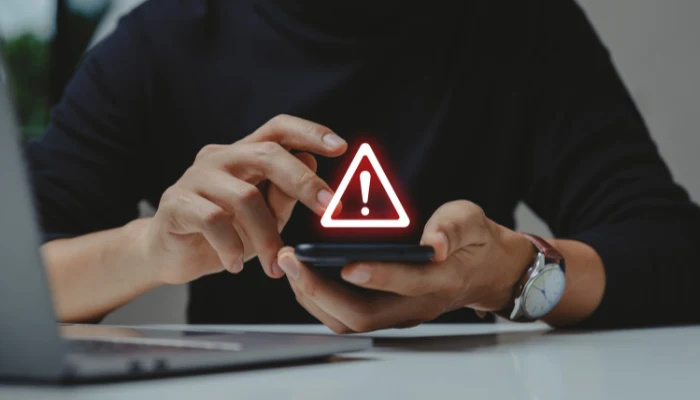Think you’d never become a victim of a financial scam? Hopefully not — but unfortunately, people do every year. In 2023, consumers reported losing more than $10 billion to fraud, according to the FTC.
With easy access to AI, new and more convincing scams are on the rise. Learn more about how to protect yourself and your loved ones in this blog.
Common Financial Scams to Look Out For
Scams rely on deception, urgency or emotional manipulation to trick you into handing over money or personal information. Recognizing these common tactics is the first step in protecting yourself and others from falling victim to fraud.
Recent common scams often fall under a few general categories, including:
- Imposter scams where the fraudster poses as someone they’re not, such as an online romantic interest or a friend or family member who needs help.
- Spoofing or phishing scams that aim to capture your password or other sensitive information by pretending to be a legitimate link or website.
- Skimming, which is when a device illegally installed on a point-of-sale system captures your credit card information.
How to Avoid Being Scammed
In general, be wary of any unexpected communication — like an email, phone call or social media message — asking you to pay money. Also, ask yourself, “Does this sound too good to be true?”
Scammers often rely on emotional manipulation, urgency and offers that seem incredibly lucrative or beneficial to lure people in. Whether it’s a promise of free money, a too-good-to-be-true job offer, a fake prize or a deep discount, these are all red flags.
To stay safe:
- Verify the source – Contact the company or person directly using official contact information. For example, if you receive an email from your bank asking you to make a payment, call the bank using the phone number from their website to verify.
- Look it up – A popular current scam involves receiving a text message alerting you that you owe money due to a driving toll. A quick web search shows that this message is a scam. If you’re in doubt, searching something like “[topic] text message scam” can show you if something is currently going around.
- Never share personal or financial information – Scammers often impersonate banks, government agencies or well-known companies.
- Be skeptical of urgency – Scammers pressure victims to act quickly to prevent them from thinking critically.
- Use strong passwords and enable two-factor authentication – Protect your accounts from being taken over.
- Educate yourself – Stay informed about common scams like phishing, fake charities, investment fraud and tech support scams. Share this information with others in your life to keep them alert.
- Understand communication guidelines – For example, the IRS will never message you on a social media account or call you to request a payment. Ask yourself if the channel you’re receiving this message on makes sense.
Related read: Tips to keep your debit card secure >>
What to Do if You’ve Fallen Victim to a Scam
Realizing you’ve been scammed can be a stressful and emotional experience. Many people feel embarrassed or ashamed, thinking they should have “known better.” However, scams are designed to be deceptive, and even the most cautious people can fall victim. You’re not alone, and there are steps you can take to minimize the damage and protect yourself moving forward.
1. Act Quickly to Limit the Damage
- Contact your bank or credit card company – If you made a payment, report the fraud immediately. They may be able to reverse charges or freeze your accounts to prevent further loss.
- Freeze or lock your credit – If personal information was stolen, contact the major credit bureaus (Equifax, Experian and TransUnion) to place a fraud alert or credit freeze on your file.
- Change your passwords – If you provided login information, update your passwords immediately, especially for financial or email accounts. Use strong, unique passwords and enable two-factor authentication.
2. Report the Scam
- Law enforcement – While they may not always be able to recover lost funds, it’s important to file a report with your local law enforcement agency. Obtain a copy of the filed report so you can use it to verify that you were a victim of theft to your credit issuers, bank and credit bureaus. Online scams should also be reported to the FBI and/or FTC.
- Better Business Bureau (BBB) – If a scam involved a fraudulent business, report it at BBB Scam Tracker.
- Social media and email providers – If the scam originated from a social media platform or email, report the fraudulent account so it can be shut down.
3. Don’t Let Embarrassment Stop You from Seeking Help
Scammers are professionals at deception and prey on trust, kindness and urgency. Falling for a scam doesn’t mean you’re naïve or careless — it means the scam was well-executed. Many victims stay silent out of embarrassment, but speaking up can prevent others from falling into the same trap.
Scam Prevention Resources From Fidelity Federal
We’re here for you anytime you need help. Find more information about how to protect yourself from scams, what to do if you find that your identity is stolen, and how to report a lost or stolen card.


